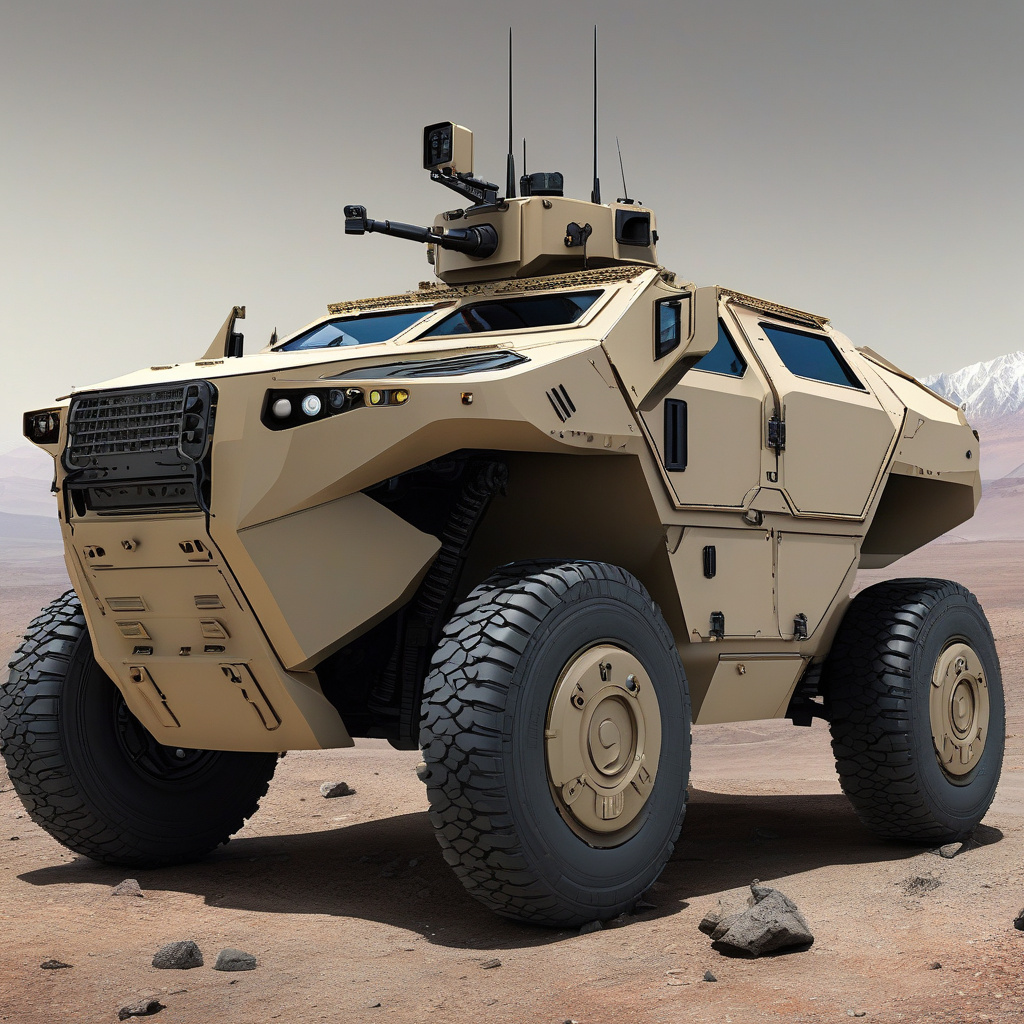Self-driving Military Vehicle That Can Conduct High-Risk Operations Set to Be Developed
A new type of autonomous military vehicle is all set to be developed. BAE Systems, a renowned defense, security, and aerospace company, has announced plans to create a self-driving military vehicle capable of executing high-risk operations with precision and efficiency. This groundbreaking development marks a significant leap forward in the field of defense technology, promising enhanced capabilities for military forces around the world.
The concept of autonomous military vehicles is not entirely new, with various countries exploring the potential applications of such technology. However, BAE Systems’ initiative represents a focused effort to design a vehicle specifically tailored for conducting high-risk operations autonomously. By harnessing the power of artificial intelligence, advanced sensors, and cutting-edge robotics, this self-driving military vehicle aims to revolutionize how dangerous missions are executed on the battlefield.
One of the key advantages of deploying self-driving military vehicles is the ability to minimize human risk in hazardous environments. By removing the need for onboard personnel, these autonomous vehicles can venture into hostile territories, gather crucial intelligence, and even engage in combat operations without putting human lives in jeopardy. This capability not only enhances the safety of military personnel but also allows for more agile and flexible mission planning.
Moreover, self-driving military vehicles offer unparalleled precision and efficiency in carrying out complex tasks. Equipped with state-of-the-art navigation systems and real-time data processing capabilities, these vehicles can navigate challenging terrain, identify potential threats, and respond to dynamic situations with remarkable speed and accuracy. As a result, military forces can achieve their objectives with greater success while minimizing collateral damage and maximizing operational effectiveness.
In addition to their tactical advantages, self-driving military vehicles also have the potential to streamline logistics and support operations. Autonomous supply convoys can transport equipment, provisions, and medical supplies across long distances, freeing up manpower for other critical tasks. Furthermore, these vehicles can be deployed for reconnaissance, surveillance, and reconnaissance missions, providing commanders with valuable situational awareness and decision-making support.
Despite the promising prospects of self-driving military vehicles, their development raises important ethical and legal considerations. Questions surrounding the use of lethal force, the potential for autonomous decision-making, and the implications for civilian populations must be carefully addressed to ensure compliance with international laws and norms. As such, BAE Systems and other stakeholders in the defense industry must prioritize ethical guidelines and regulatory frameworks to govern the deployment of autonomous military technology responsibly.
In conclusion, the upcoming development of a self-driving military vehicle capable of conducting high-risk operations represents a significant milestone in the evolution of defense technology. By leveraging autonomous systems to enhance safety, precision, and efficiency on the battlefield, military forces stand to benefit from increased capabilities and reduced risks in complex operational environments. As this groundbreaking project unfolds, it underscores the transformative potential of autonomous technology in shaping the future of modern warfare.
autonomous technology, military innovation, defense industry, artificial intelligence, ethical considerations












